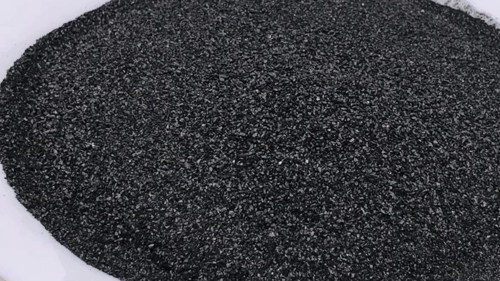
Black silicon carbide is a type of carbon material. It has a much lower hardness level than green silicon carbide, but it is still very strong and has excellent anti-oxidation properties. It is produced by mixing silica and coke at a temperature above 2000degC. It is widely used in abrasive machining. Other benefits of black silicon carbide include its high hardness and electrical conductivity, low expansion coefficient, and a high number of applications.
Silicon carbide, also known as carborundum, is a naturally occurring material. It is a very hard material but is also brittle. On the Mohs scale, it has a hardness of 9.5. It is used in hard metal manufacturing. The two main forms of silicon carbide are green and black.
Black silicon carbide has excellent mechanical and chemical properties. Its properties include high strength, hardness, and thermal conductivity. The material has a low thermal expansion coefficient and is highly resistant to chemical corrosion. This material is used in abrasives, high-temperature refractory materials, and as a metallurgical deoxidizer.

Silicon carbide is a common material used in the production of various electronics. It is an excellent electrical conductor with a very low thermal expansion coefficient. It is also very rigid and hard. It can also be used in the construction of high energy microwave devices. Silicon carbide was first used to produce light-emitting diodes (LEDs), which were then replaced with gallium nitride, which emits light that is 10 to 100 times brighter. Silicon carbide is also useful as a lightning rod for electrical energy systems, and it regulates resistance by controlling the voltage across it.
Silicon carbide can be produced by a process called the Lely process. During this process, silicon carbide powder is first elevated to a high-temperature species at 2500 degrees Celsius, where it is redeposited into flake-like single crystals of two centimeters in size. Then, it is subjected to a reaction-sintering process using silicon and nitrogen high-pressure steam.
Black silicon carbide is a material used in abrasive workpieces for a variety of applications. Its hardness rivals that of diamond, cubic boron nitride, and boron carbide, and it's relatively inexpensive to produce. It's also lightweight and has good thermal conductivity and low thermal expansion.
Silicon carbide is available in two grades: black and green. The former is highly pure and is used in precision grinding operations on metals such as martensitic stainless steels. The latter, however, is used in roughing operations on cast iron.
Black silicon carbide is a very hard, versatile abrasive material. It's produced from high-quality silicon dioxide and petroleum coke, and is used in a variety of applications. It's used in the manufacture of grinding wheels, bonded abrasive tools, polishing processes, and more. It's also a useful filler for ceramic parts.
Petroleum coke is a solid petroleum product with distinct physical and chemical properties. It contains 90-97% carbon and about 1.5-8% hydrogen. Other components include nitrogen, chlorine, sulfur, and heavy metal compounds. The physical and chemical properties of petroleum coke are critical for many applications, including steelmaking.

Write a Message